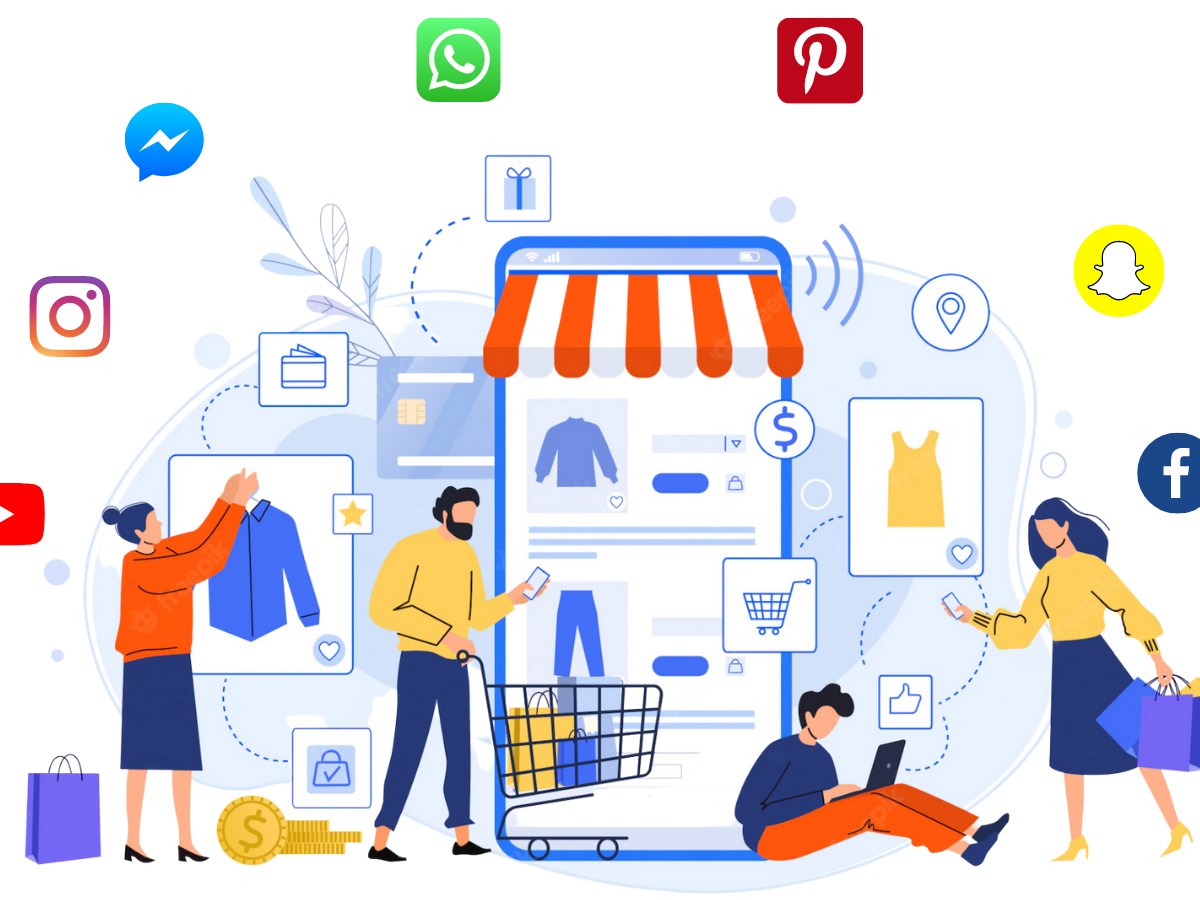How Social Commerce is Changing the Face of Influencer Marketing

The Evolution of Influencer Marketing: Social Commerce’s Impact on Brand-Consumer Relationships
Influencer marketing has come a long way since its inception. What started as a simple word-of-mouth marketing strategy has now evolved into a full-fledged industry, with brands allocating significant budgets to collaborate with influencers who can help them reach their target audience. The rise of social media platforms like Instagram, YouTube, and TikTok has provided a perfect breeding ground for influencers to grow their following and monetize their content. However, the latest development in this space is the emergence of social commerce, which is poised to change the face of influencer marketing as we know it.
Social commerce refers to the process of buying and selling products and services directly through social media platforms. This new trend is blurring the lines between social networking and e-commerce, making it easier for consumers to discover, research, and purchase products without leaving their favorite social media apps. The integration of shopping features within social media platforms has opened up new opportunities for brands to engage with their audience and drive sales through influencer marketing campaigns.
One of the key aspects of social commerce is the ability to create shoppable posts, where influencers can tag products in their content, allowing their followers to purchase the items directly from the post. This seamless shopping experience not only simplifies the buying process for consumers but also allows influencers to provide more value to their audience by offering personalized product recommendations and styling tips. As a result, brands are now able to measure the direct impact of influencer marketing campaigns on their sales, making it easier to justify their investments in this marketing channel.
Moreover, social commerce is changing the way brands and influencers collaborate. In the past, influencer marketing campaigns were primarily focused on creating brand awareness and driving engagement. However, with the rise of social commerce, brands are now looking for influencers who can not only create compelling content but also drive conversions and sales. This shift in focus has led to the rise of performance-based influencer marketing, where influencers are compensated based on the sales they generate through their content.
This new approach to influencer marketing has also led to the rise of micro-influencers, who may have a smaller following but boast higher engagement rates and a more loyal audience. Brands are increasingly partnering with micro-influencers, as they are often more cost-effective and can drive higher conversion rates compared to their more famous counterparts. Additionally, micro-influencers are perceived as more authentic and relatable by their audience, making their product recommendations more trustworthy and influential.
Furthermore, social commerce is enabling brands to tap into user-generated content (UGC) to drive sales. Consumers are more likely to trust the opinions of their peers than those of celebrities or macro-influencers. By leveraging UGC, brands can showcase real-life experiences and testimonials from their customers, which can help build trust and credibility among potential buyers. Social commerce platforms are making it easier for brands to collect, curate, and display UGC, turning their customers into brand advocates and influencers.
In conclusion, the rise of social commerce is significantly changing the landscape of influencer marketing. As the lines between social networking and e-commerce continue to blur, brands and influencers need to adapt their strategies to stay relevant and capitalize on this growing trend. By embracing social commerce, brands can build stronger relationships with their audience, drive sales through authentic and engaging content, and ultimately, redefine the way they approach influencer marketing. The future of influencer marketing lies in the seamless integration of content creation, audience engagement, and e-commerce, and social commerce is undoubtedly leading the way.
